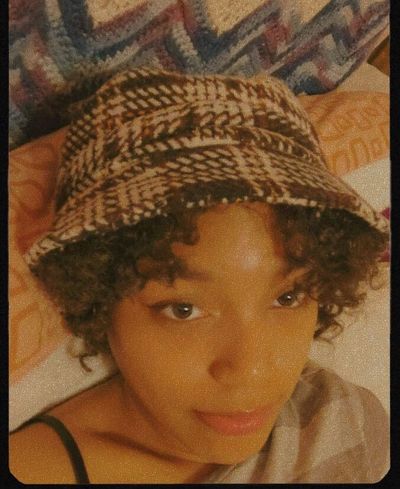Growing up with Black Identity

Every Spokane teen has their own story of growing up, facing challenges and working to match or beat expectations. Now add the complicating factors of being a Black high school student in a city that is often welcoming, but overwhelmingly white. In today’s Serendipity section, The Spokesman-Review shares essays and a poem by six such young people. Each of their stories brings a different perspective. And yet each of them expresses a yearning for acceptance and respect.
As a young girl growing up Black and Filipino in Spokane, I have not grown up around the part of my family that is Black.
I didn’t always notice that I was racially different than most of my peers. When I entered middle school, it was the first time I noticed that my brown skin made me different. I was sitting in an orchestra concert. I looked around and noticed that there were few others who were like me.
Making friends has always been a challenge for me because I sometimes lack good communication skills. I don’t like the same things other kids like, I don’t watch some shows other kids watch. Conversations and connecting with others is already awkward sometimes. I have never judged and will never judge someone based on the color their skin; however I don’t have many friends of color. When I sit in class I know I’m usually the only or one of the few Black or Brown students. It is my hope that I will be able to connect more with the Black community because I think it is a good idea to see variety.
Sometimes I wonder if others think of me differently because I’m not a white kid from Spokane, before getting to know who I am. I believe that to connect with others and make friends, everyone has to be interested in similar things. But sometimes, getting to that part is tough when people have ideas in their head about who a person is. As a Black and Filipino girl, I often wonder these things: Do I go along to get along? Do I speak up when things are not okay? Should I always have something to say?
There was a time in class when a scenario was brought up that involved racial slurs and we were asked to give a reaction; it was a “What Would You Do?” lesson to teach students to have conversations when things are not right. Everyone expected me to have a certain response to the situation; but I honestly felt awkward because I didn’t know what to say. This is where it can be uncomfortable for me.
If I have not experienced something, it’s hard for me to respond to the situation. I don’t focus on skin color, but I believe that racism is a reality, and in some cases, it’s a mindset people grow up surrounded by.
There have been times when I have experienced different responses to my cultural traits, and I have noticed that when a person is not like everyone else, there is always a reaction. I question why that is. Perception can affect how we create reality and it’s different based on our experiences. Truth and reality come when your mind is open to understanding why someone isn’t like everyone else. It’s important to be open minded because it’s a major step to making new connections.
When it comes to having conversations about race and identity, I often feel confused and sometimes the whole conversation flies over my head. In my core, I know that racism is wrong. I know that there are ugly experiences that people have faced. It’s important to understand other stories and see variety in points of view and experiences; there are some stories that are often overlooked or pushed away. Those experiences need to be heard because they count. No one should be overlooked. I don’t think race should divide us because at the end of the day, we are all people.
Lastly, there is a void in understanding the conversation around race in our Spokane Public Schools, even to the point where other kids who are Black or brown don’t get to hear some of the history that is important in our country. What I do believe is that identity should be something that brings us together, not separates us. My goal as a young Black and Filipino woman would be to learn more about my history and how our culture meets with the rest of humanity.
Jaelen Fojas, a senior at Shadle High, participates in the Shadle S.H.E. Women of Purpose group. She plans to join the U.S. Navy after graduation. She can be reached at spokaneblackstories@spokesman.com.